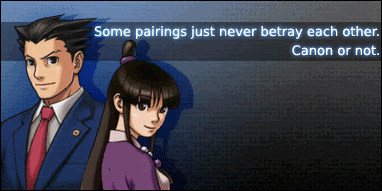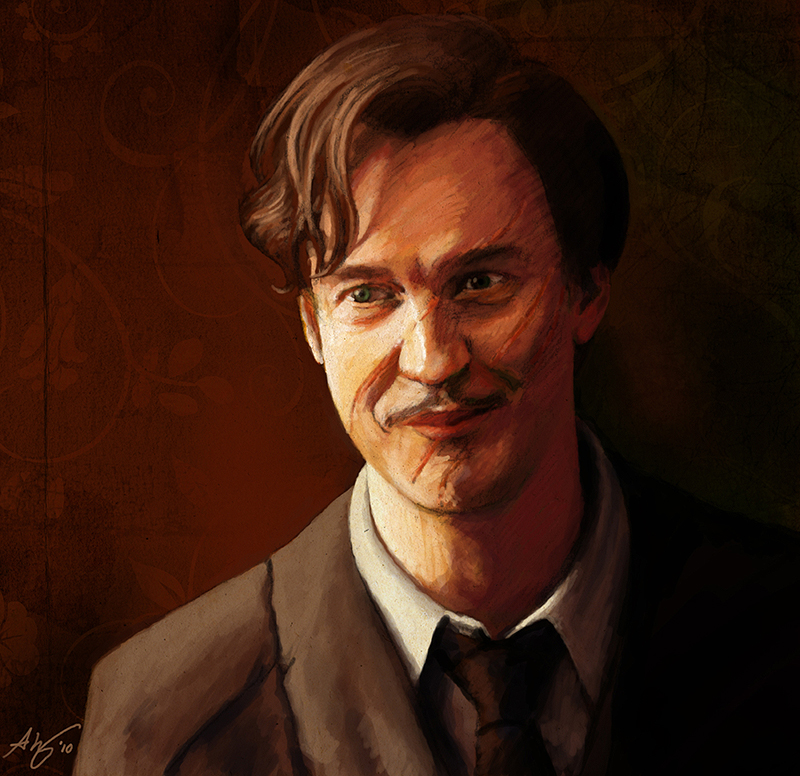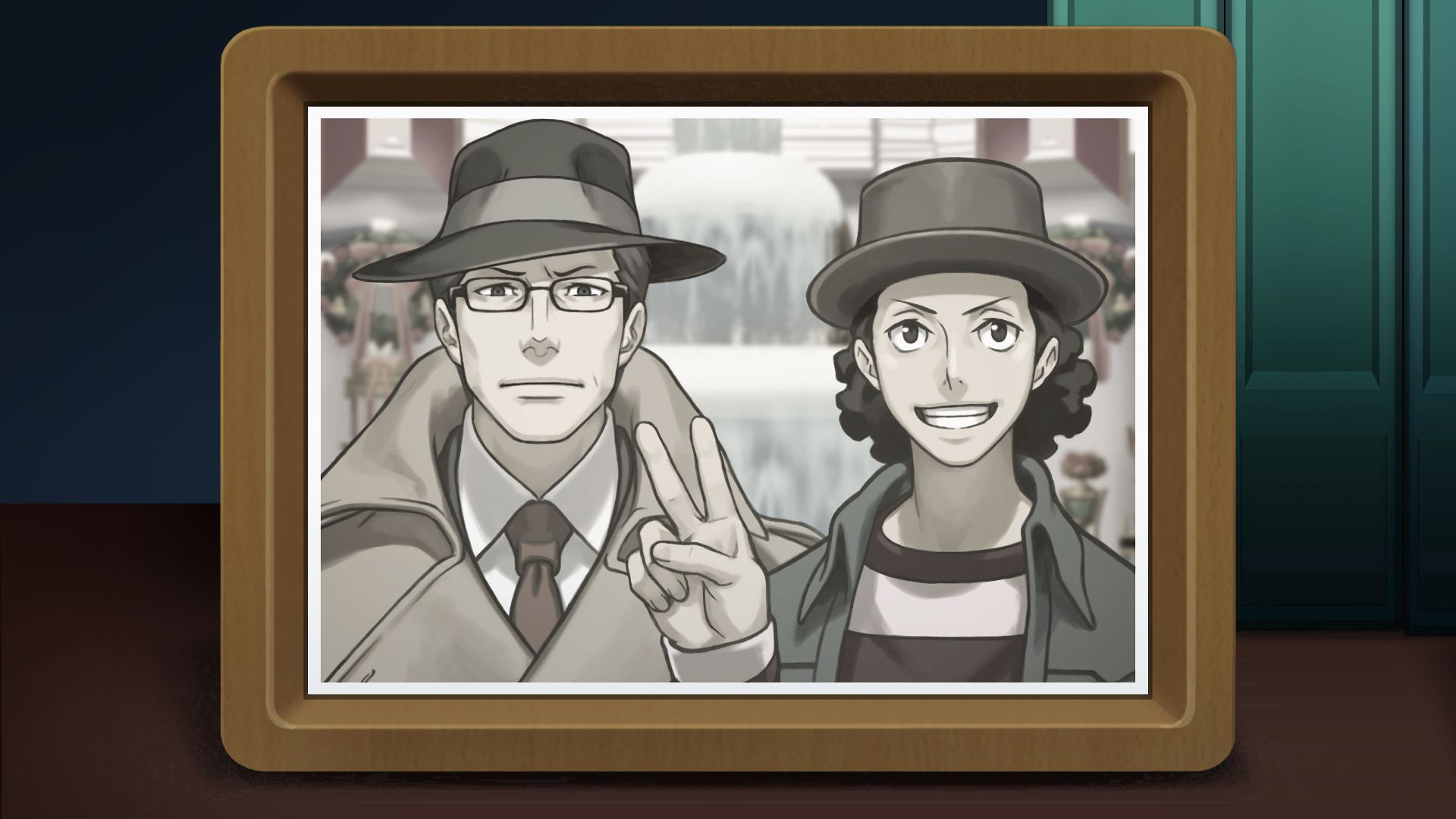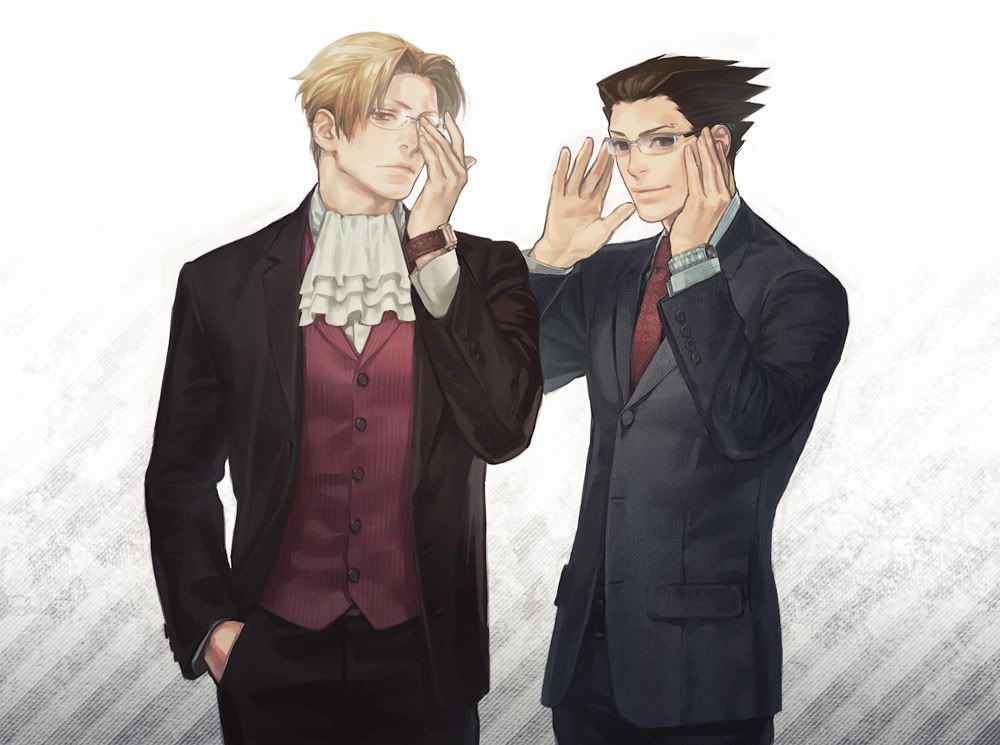
Gender: Female
Location: Finland
Rank: Decisive Witness
Joined: Sun Nov 08, 2009 2:07 pm
Posts: 226
Reiji...!!! He looks wonderful! You draw him so well! <3

You guysss! AAI is finally out...!
Thanks. ^^ <3

Beautiful signature by Nadindi <3

OKKUSENMAN! OKKUSENMAN!
Gender: Female
Location: Uranus
Rank: Desk Jockey
Joined: Mon Jan 25, 2010 11:20 am
Posts: 65

Gender: Female
Location: Finland
Rank: Decisive Witness
Joined: Sun Nov 08, 2009 2:07 pm
Posts: 226

Beautiful signature by Nadindi <3

Gender: Female
Location: Australia
Rank: Ace Attorney
Joined: Thu Dec 20, 2007 1:20 pm
Posts: 2197
That's the part I'm looking forward to most too.....


LOL parody sig trend. Phoenix/Maya Day is Sept 5!
[ Read my fanfics! =) | Phoenix/Maya 'Evidence' List ]

Aspiring to Inspire
Gender: Female
Location: Asia
Rank: Medium-in-training
Joined: Fri Dec 18, 2009 2:57 am
Posts: 458

Till the landslide brought me down...
Gender: Female
Location: Sydney
Rank: Ace Attorney
Joined: Fri Apr 03, 2009 12:03 pm
Posts: 1198

Aspiring to Inspire
Gender: Female
Location: Asia
Rank: Medium-in-training
Joined: Fri Dec 18, 2009 2:57 am
Posts: 458


Gender: None specified
Location: Bizarro World
Rank: Suspect
Joined: Tue Nov 25, 2008 11:25 pm
Posts: 47

I also have to second (fourth?) this. I like Edgeworth as much as...well, everyone else, but I MISS PHOENIX TOO MUCH.

Aspiring to Inspire
Gender: Female
Location: Asia
Rank: Medium-in-training
Joined: Fri Dec 18, 2009 2:57 am
Posts: 458

Overruled?
Gender: Male
Location: Nevada
Rank: Medium-in-training
Joined: Wed Nov 21, 2007 11:27 pm
Posts: 301


OKKUSENMAN! OKKUSENMAN!
Gender: Female
Location: Uranus
Rank: Desk Jockey
Joined: Mon Jan 25, 2010 11:20 am
Posts: 65
I feel like deciding on such a thing is near impossible...! OTL

Overruled?
Gender: Male
Location: Nevada
Rank: Medium-in-training
Joined: Wed Nov 21, 2007 11:27 pm
Posts: 301
Hmm... now what topic to discuss... >> Ah, I know.
So what do you guys think on this matter?


Gender: Female
Location: Australia
Rank: Ace Attorney
Joined: Thu Dec 20, 2007 1:20 pm
Posts: 2197
Oh, here's a little preview of the first chapter in my fan fic, thought you guys might get a chuckle out of it.

How's the fanfic coming?
 I read the excerpt again, it's hilarious...
I read the excerpt again, it's hilarious...Hmm... now what topic to discuss... >> Ah, I know.
So what do you guys think on this matter?

LOL parody sig trend. Phoenix/Maya Day is Sept 5!
[ Read my fanfics! =) | Phoenix/Maya 'Evidence' List ]

Overruled?
Gender: Male
Location: Nevada
Rank: Medium-in-training
Joined: Wed Nov 21, 2007 11:27 pm
Posts: 301
 I read the excerpt again, it's hilarious...
I read the excerpt again, it's hilarious...Actually at this point I'm putting that fic on hold and working out the details of a different story I like better. The basic plot of "Turnabout Lifestyle" takes place some time after Bridge to the Turnabout, and ignores the events of GS4. Phoenix returns to his apartment after attending the Hazakura Temple training sessions and recuperating from a broken leg only to find he's been evicted for not paying the rent for three months...
Landlord: Let me guess, you took another freebie case, huh Wright?!
Phoenix: (She was a nun, what was she supposed to pay me with, stale bread?)
...and things go from bad to worse when his office building catches on fire thanks to an arsonist. With nowhere to go, Maya offers Phoenix the chance to stay with her and Pearl at Fey Manor. Hilarity ensues. I plan to bring back Iris as well, but I'll be fleshing out her personality to make her more likable.


Gender: None specified
Rank: Desk Jockey
Joined: Sat Dec 19, 2009 12:59 am
Posts: 120
...I would probably write more if I wasn't really, really hungry right now. :T
Also, expect some arts on the horizon. <3 I love this man too much.

Gender: Female
Location: Australia
Rank: Ace Attorney
Joined: Thu Dec 20, 2007 1:20 pm
Posts: 2197
A couple of days ago, Ryota Niitsuma, the director of Marvel Vs Capcom 3, deconfirmed Phoenix Wright as an inclusion for the game. To the objections of MANY.
Today, Shu Takumi, in an interview (around the midway point of the video), said that he was aware Wright wasn't up for inclusion. However, if he got enough support from fans, then he would go to Niitsuma and fight for Phoenix Wright's inclusion.
In a separate video interview recorded today, Niitsuma stated that he was aware of Takumi's "challenge" (though not that word specifically). The gist of it is that Niitsuma says that although there are no plans for Phoenix Wright, he might come around and put him in to please the fans, but it stands as a HUGE MAYBE. Even with the support. I have no direct evidence of Niitsuma explicit saying so, but this is not BS. If and when the video shows up I will edit my post.
Regardless, I wanted to pass this information around to anyone who might be interested in seeing Nick/Trite/Wrighto/Feenie/Ryuuichi Naruhodou in MvC3. He might not "fit" as a fighting game character, but there are certainly fighting games rgar have used characters that otherwise wouldn't make sense, and MvC3 will be big on fanservice, according to Niitsuma. The viability of Wright as a character is being suspended for a moment here.
I don't really know what to do, but I will be filing a request atCapcom Unity's Suggestion Box. I want one more Turnabout for Phoenix Wright, and I'll do what I can for it! If you would like to see Phoenix Wright in Marvel Vs Capcom 3, do what you can!
------EDIT-------: Video/Audio of Niitsuma saying he might have to purposely lose to Shu Takumi if Takumi fights him has been found! In its significance it is an audio sample, but at the end, for a few seconds, the confirmation is there. Thanks to Pool I for the footage, and his petition.
PHOENIX WRIGHT FOR MARVEL VS CAPCOM 3!!!!!!!!!
Make suggestions and vote them up at Capcom's feedback site!
http://www.capcom-unity.com/go/suggestion/box
Facebook Group
Youtube 'petition'

LOL parody sig trend. Phoenix/Maya Day is Sept 5!
[ Read my fanfics! =) | Phoenix/Maya 'Evidence' List ]

Overruled?
Gender: Male
Location: Nevada
Rank: Medium-in-training
Joined: Wed Nov 21, 2007 11:27 pm
Posts: 301
I admit I was disappointed in hearing Phoenix be disconfirmed, but this makes me optimistic again, perhaps even more then before.

You guys should see the whiners at GameFAQs saying how much sacrilege it would be if Phoenix was in, cause Marvel vs Capcom is SERIOUS BUSINESS.



Gender: Female
Location: Australia
Rank: Ace Attorney
Joined: Thu Dec 20, 2007 1:20 pm
Posts: 2197
I admit I was disappointed in hearing Phoenix be disconfirmed, but this makes me optimistic again, perhaps even more then before.

You guys should see the whiners at GameFAQs saying how much sacrilege it would be if Phoenix was in, cause Marvel vs Capcom is SERIOUS BUSINESS.

Well it's Capcom's fault for not putting him in the 'more suited' Tatsunoko vs Capcom.
Obligatory links list:
SUPPORT THE WRIGHT FIGHT! PHOENIX WRIGHT FOR MARVEL VS CAPCOM 3!
http://www.capcom-unity.com/go/suggestion/box
Petition (you can use a username): http://www.petitiononline.com/MVC3
Facebook: http://ow.ly/2gZIK
Youtube petition: http://ow.ly/2gZPI
Petition thread on Capcom site: http://ow.ly/2iXag
Twitter 1: https://twitter.com/PWrightMvC3
Twitter 2: https://twitter.com/TURNABOUTMVC
Thread @ GameFAQs. part 2: http://www.gamefaqs.com/boards/995375-m ... s/55769431

LOL parody sig trend. Phoenix/Maya Day is Sept 5!
[ Read my fanfics! =) | Phoenix/Maya 'Evidence' List ]

Beautiful flower
Gender: None specified
Rank: Decisive Witness
Joined: Wed Oct 27, 2010 2:45 am
Posts: 193
REVIVE THE THREAD!
This was posted on Edgey fanclub too, but since it contains Phoenix I think it's appropriate to put it in here.


The video game boy; the one who wins
Gender: Male
Location: Sweden
Rank: Ace Attorney
Joined: Mon Oct 07, 2013 12:22 pm
Posts: 7747
Maybe this has been posted before, but anyway, I finally had the energy to read through this and I recommend it - it's a thorough analysis on Phoenix' development, from class trial-Phoenix to hobo-Phoenix based on his actions and reactions. After reading this I appreciate Phoenix even more as a character, and I understand him a bit better as a "person".

Who is online
You cannot reply to topics in this forum
You cannot edit your posts in this forum
You cannot delete your posts in this forum
You cannot post attachments in this forum
















